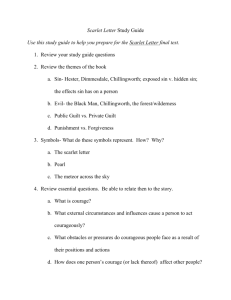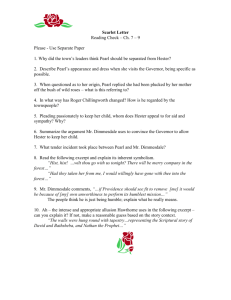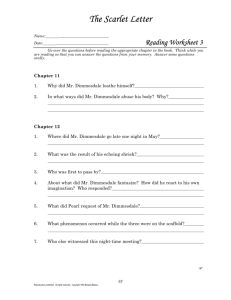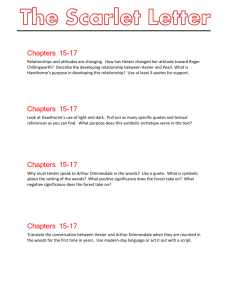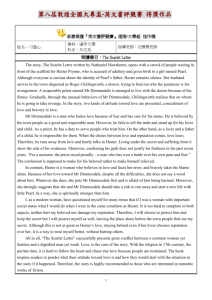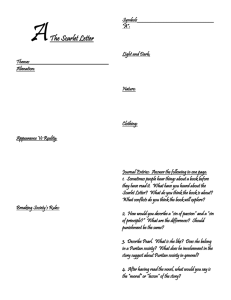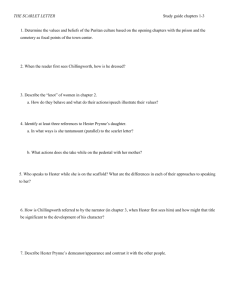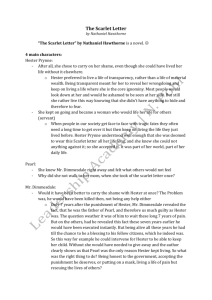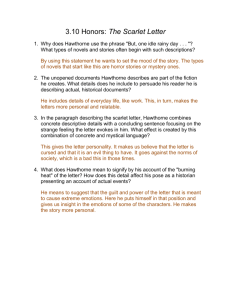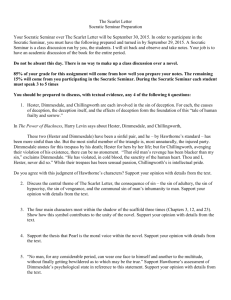Interpreting meteors, weeds and sunshine: Acts of
advertisement
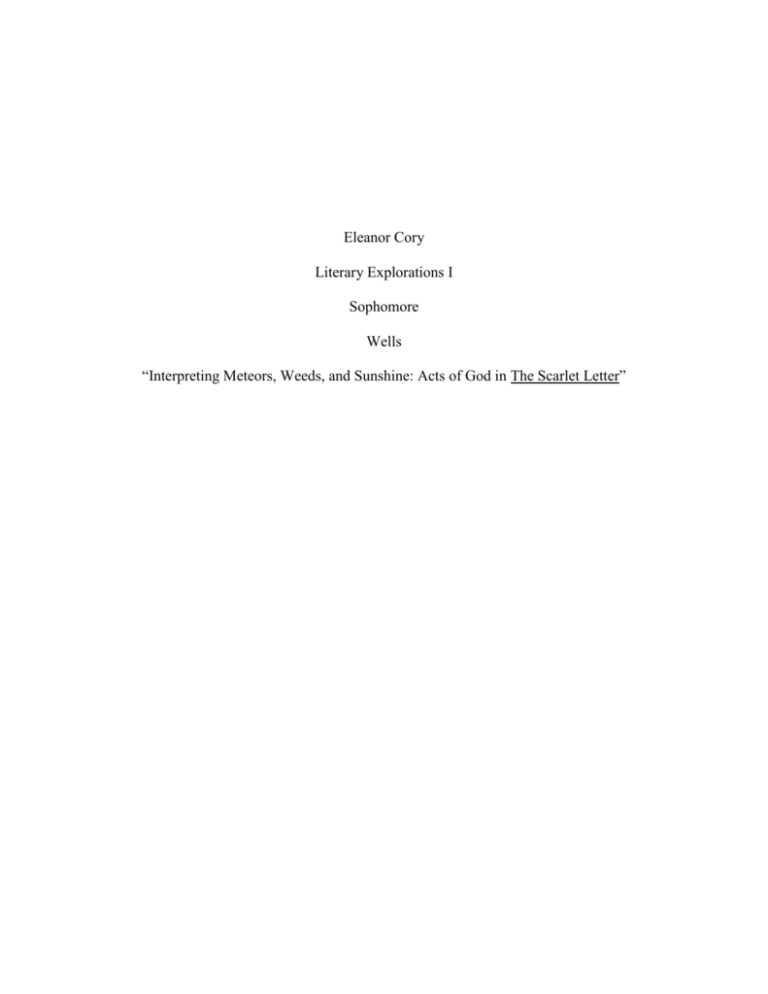
Eleanor Cory Literary Explorations I Sophomore Wells “Interpreting Meteors, Weeds, and Sunshine: Acts of God in The Scarlet Letter” In recent years, many occurrences—from hurricanes to medical rarities to pictures on pieces of toast—have been labeled acts of God. Those who disagree attribute this association to the idea that people read what they want into a situation. Similar comparisons were made in the time of the Puritans, although theirs tended to be taken more seriously and often held authority in government or court. Still, the idea that these “messages from God” are subconsciously interpreted to fit personal beliefs can also be applied to those of Massachusetts Bay. In his novel The Scarlet Letter, Nathaniel Hawthorne shows that when events in the book appear to be messages from God, they are actually reflections of how the characters perceive themselves and each other. When Reverend Dimmesdale stands on the scaffold in the middle of the night and sees a meteor, he believes it to be a message from God. His conclusion is unsurprising, as Hawthorne states, “Nothing was more common, in those days, than to interpret all meteoric appearances, and other natural phenomena, that occurred with less regularity than the rise and set of sun and moon, as so many revelations from a supernatural source” (154). As a result of all of Dimmesdale’s guilt for his sin, he sees the letter “A” in the meteor’s path. It seems almost too perfect to be a coincidence. At the moment his conscience chooses to drive him to the scaffold, a place representing his sin, a meteor happens to fall in a way that can be seen as the letter he knows he should be wearing for the same sin. However, Hawthorne very clearly discredited this idea, remarking that “another's guilt might have seen another symbol in it” (155). Evidently, this message came from Dimmesdale’s own guilt-ridden mind rather than from on high. The messages appear to other characters as well, although different people have different opinions. When Chillingworth and Dimmesdale walk together in the graveyard and notice the weeds growing on an unmarked grave, Chillingworth perceives them as a message that the person buried there died with unconfessed secrets. Dimmesdale, however, calls Chillingworth’s assertion “fantasy” and the two begin a debate about confession of sin. While the weeds could be a reflection of sin or a message from God, both characters interpret whatever would help their argument and internal strife. Chillingworth sees the unattractive plants as representative of the consequence for a man bringing his secrets to his grave because, through his search for and hatred of Hester’s partner in sin, he has grown to view those who do not confess as sinners far below any others. Dimmesdale, meanwhile, refuses to give the plants this meaning because he views the guilt and torment at his inability to confess his sin as punishment enough and does not want to accept Chillingworth’s argument that he is actually much worse than anyone else. Ultimately, the “message” on the grave is only what the characters want it to be. God continues to appear throughout the novel in various manifestations. Nature in Salem appears to give God-like judgments of the people in the community. However, these judgments seem to reflect the views the people hold of themselves rather than those God might actually hold. As Hester and Pearl walk through the forest, Hester remains perpetually in the shadows. Pearl notices this and comments, “Mother, the sunshine does not love you. It runs away and hides itself, because it is afraid of something on your bosom” (183). At this point, Hester is tormenting herself and feels separated from God. She views Pearl as more innocent then her, noticing that Pearl is surrounded by sunlight. Later, however, Hester throws off the scarlet letter, lets down her hair, and feels the sun begin to shine down on her. Nature has finally stopped judging her and loves her as it loves Pearl. The sudden change came not because God had suddenly forgiven Hester, but because she had forgiven herself. She did not feel the sunshine until she believed that she deserved it. Although it could appear to be an act of God, the act was in fact purely a reflection of Hester’s own self-image. God and his judgment play a key role in The Scarlet Letter. For this reason, many characters often seek guidance or messages from above. Throughout the novel, there are many instances of events that could be interpreted as acts of God. However, upon close examination, it becomes clear that these messages are more reflections of the beliefs of the characters rather than the opinion of God. Ultimately, God’s role in the lives of the individual characters is mostly to give them validation for their feelings of guilt, anger, or happiness.

